
The capacity to feel the experiences of others — whether grief or joy — can open your mind to a greater sense of belonging in the world, and close the divide that separates those you might otherwise consider irreconcilably different from yourself.
Acclaimed solo performer and beloved Esalen faculty Ann Randolph blazes a unique path through laughter, grief, edgy characters and extreme life experiences. Her work is bracing, brilliant and ultimately illuminates the power of empathy to heal us all. We spoke with Ann about the evolution of her theater and teaching work, and the power of stories to bring people together, even in a polarized political climate.
Esalen News: Ann, how did you start helping people tell their own stories?
Ann: For many years I worked the graveyard shift at a women’s homeless shelter in Los Angeles. I would hear stories one to one in the intake office and I knew that if we could share stories together there would be a bond, so I started formally doing a class in the shelter in speaking and sharing our stories.
Also, I have to say that when I was touring I got really lonely. When you do a solo show and you’re going town to town, it can be isolating. I wanted to hear other peoples’ stories; I didn’t want to just tell my story every night. So one night a week I started offering community nights for people to come back to the theater and tell their stories. I loved that experience of creating a community in which you have permission to say anything.
Then in 2014, I wrote a show called Loveland, a comedy about grief and loss. After the show, people would wait around in the lobby to tell me their stories of loss – the most private stories of loss or grief that they’d been carrying. So I thought, why not do that in the theater? I invited people to stay after the show. I passed out pens and paper and they wrote about grief and loss and then they took the stage. We all saw each other in one another, as we spoke about unspeakable losses. I got very excited because it felt like a new art form. I loved it and I wanted to keep doing it everywhere.
Esalen News: How did these interactive experiences influence your own artistic work?
Ann: Watching people across the country who had never gotten on stage before tell the most riveting stories led me into my next project: Inappropriate in all the Right Ways. I thought, Ann, just go outside your comfort zone. You’ve always had everything down on paper to a syllable. Can you do what they do and get up on the fly and tell your own story?
So that’s what this new show is; it’s not scripted, it’s not choreographed. And within the show is a writing exercise for the audience. This is my evolution, right? In my other shows, I take my curtain call, and people can leave or stay. In this one they can’t. They are participating! Several people volunteer to get up and tell their stories as part of the show each night.
Esalen News: This is starting to sound like an Esalen workshop! Can you share how you first started teaching here?

Ann: I knew about Esalen from early on. I was always interested in the human potential movement, but I was also a comedian — a class clown, very inappropriate! I wondered how these two things – human potential and comedy – go together. When I was working at the homeless shelter I actually came to Big Sur and tried to get into Esalen at the Gate, but I didn’t have a reservation! They wouldn’t let me in, and I was like, “But this is my dream!” My dream was Broadway and Esalen.
It was Mel Brooks who told me to send all my reviews and a press packet to Esalen. It was a big jump to go from working at the homeless shelter to teaching at Esalen, but I knew one thing: I had a way of bringing out stories that I hadn’t seen done before, which was through the body. The way I like to work is moving the body, because when I’m improvising and moving the body, a deeper story will emerge. I love experimenting, and where else to experiment and bring human potential and comedy together but Esalen?
Esalen has always supported the shows I’ve done. In my shows, I am putting the extremes out there, because I’ve experienced those extremes in my life. Some of it is raw, and dirty, and hard to look at, and yet we all have those parts within us. And when we see somebody else exposing them and sharing their deepest truths – and often there’s a lot of shame in there – people feel that they’re not alone. If you stop that by saying, “We’re only allowing a certain kind of ‘appropriate’ talk and behavior,” then it’s only part of the beautiful, imperfect human story that we’re telling.
Esalen News: Your work has the potential to help people hear the stories of others who may be quite different from themselves. In these polarized times, are shared stories enough to close the gap between people?
Ann: I believe so. Right now, there’s very little identification with people from Middle America. We have a certain preconception about them. But if people heard their stories, I think it would be completely different.
I’m from Ohio, so I definitely have very good friends who are conservatives, and here in California, friends who are liberals. I know both worlds very well. I have recently started gathering one-minute stories – from taxi drivers, people who participate during my show, from people I meet all over the country — it’s a new project and I have some of the stories posted online. The stories use a particular format based on a song, and in one minute you’ll get a life story. It’s extraordinary; it’s a streamlined way for people to share their stories, and when it happens at my shows, the rest of the audience is cheering in solidarity.
To hear more about Ann’s life and work, listen to our Voices of Esalen podcast.

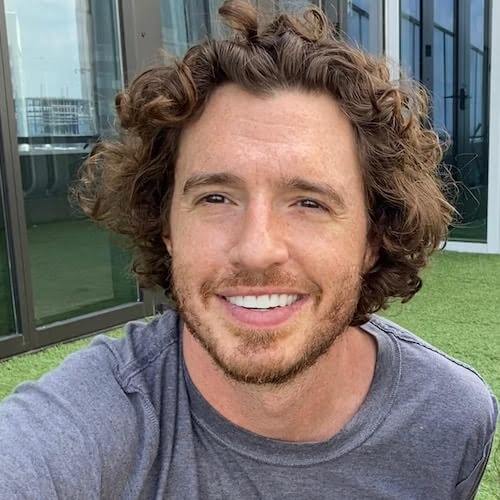
“Remembering to be as self compassionate as I can and praying to the divine that we're all a part of.”
–Aaron
“Prayer, reading, meditation, walking.”
–Karen
“Erratically — which is an ongoing stream of practice to find peace.”
–Charles
“Try on a daily basis to be kind to myself and to realize that making mistakes is a part of the human condition. Learning from our mistakes is a journey. But it starts with compassion and caring. First for oneself.”
–Steve
“Physically: aerobic exercise, volleyball, ice hockey, cycling, sailing. Emotionally: unfortunately I have to work to ‘not care’ about people or situations which may end painfully. Along the lines of ‘attachment is the source of suffering’, so best to avoid it or limit its scope. Sad though because it could also be the source of great joy. Is it worth the risk?“
–Rainer
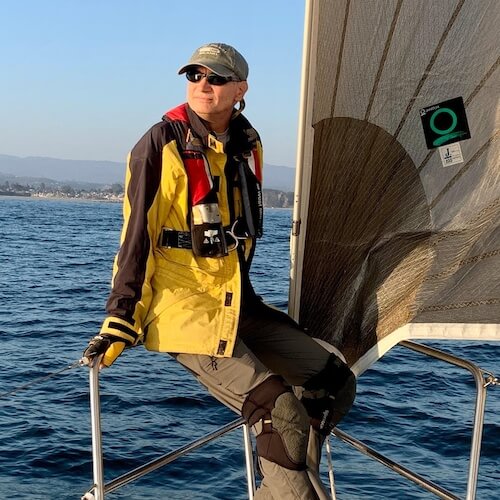
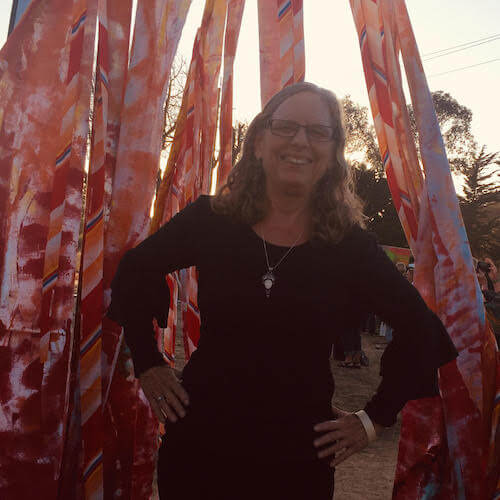
“It's time for my heart to be nurtured on one level yet contained on another. To go easy on me and to allow my feelings to be validated, not judged harshly. On the other hand, to let the heart rule with equanimity and not lead the mind and body around like a master.”
–Suzanne
“I spend time thinking of everything I am grateful for, and I try to develop my ability to express compassion for myself and others without reservation. I take time to do the things I need to do to keep myself healthy and happy. This includes taking experiential workshops, fostering relationships, and participating within groups which have a similar interest to become a more compassionate and fulfilled being.“
–Peter
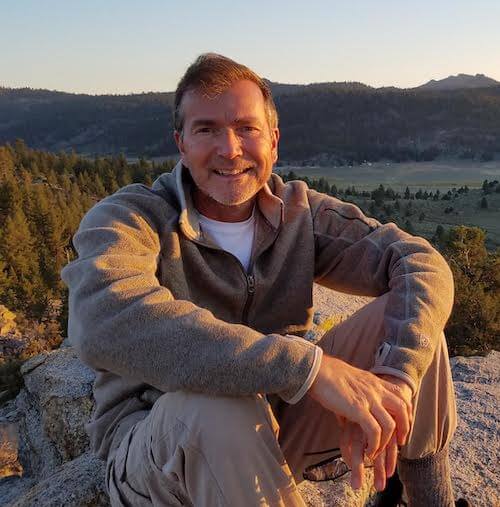
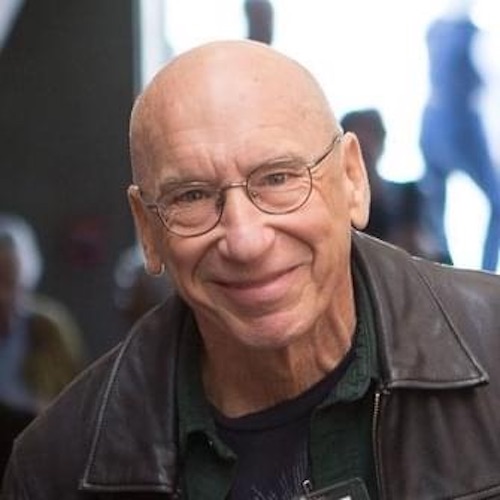
“Self-forgiveness for my own judgments. And oh yeah, coming to Esalen.”
–David B.
“Hmm, this is a tough one! I guess I take care of my heart through fostering relationships with people I feel connected to. Spending quality time with them (whether we're on the phone, through messages/letters, on Zoom, or in-person). Being there for them, listening to them, sharing what's going on with me, my struggles and my successes... like we do in the Esalen weekly Friends of Esalen Zoom sessions!”
–Lori
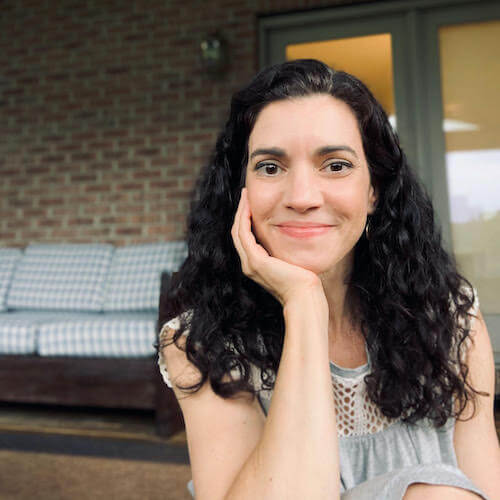
“I remind myself in many ways of the fact that " Love is all there is!" LOVE is the prize and this one precious life is the stage we get to learn our lessons. I get out into nature, hike, camp, river kayak, fly fish, garden, I create, I dance (not enough!), and I remain grateful for each day, each breath, each moment. Being in the moment, awake, and remembering the gift of life and my feeling of gratitude for all of creation.”
–Steven
“My physical heart by limiting stress and eating a heart-healthy diet. My emotional heart by staying in love with the world and by knowing that all disappointment and loss will pass.“
–David Z.
Today, September 29, is World Heart Day. Strike up a conversation with your own heart and as you feel comfortable, encourage others to do the same. As part of our own transformations and self-care, we sometimes ask for others to illuminate and enliven our hearts or speak our love language.
What if we could do this for ourselves too, even if just for today… or to start a heart practice, forever?

The capacity to feel the experiences of others — whether grief or joy — can open your mind to a greater sense of belonging in the world, and close the divide that separates those you might otherwise consider irreconcilably different from yourself.
Acclaimed solo performer and beloved Esalen faculty Ann Randolph blazes a unique path through laughter, grief, edgy characters and extreme life experiences. Her work is bracing, brilliant and ultimately illuminates the power of empathy to heal us all. We spoke with Ann about the evolution of her theater and teaching work, and the power of stories to bring people together, even in a polarized political climate.
Esalen News: Ann, how did you start helping people tell their own stories?
Ann: For many years I worked the graveyard shift at a women’s homeless shelter in Los Angeles. I would hear stories one to one in the intake office and I knew that if we could share stories together there would be a bond, so I started formally doing a class in the shelter in speaking and sharing our stories.
Also, I have to say that when I was touring I got really lonely. When you do a solo show and you’re going town to town, it can be isolating. I wanted to hear other peoples’ stories; I didn’t want to just tell my story every night. So one night a week I started offering community nights for people to come back to the theater and tell their stories. I loved that experience of creating a community in which you have permission to say anything.
Then in 2014, I wrote a show called Loveland, a comedy about grief and loss. After the show, people would wait around in the lobby to tell me their stories of loss – the most private stories of loss or grief that they’d been carrying. So I thought, why not do that in the theater? I invited people to stay after the show. I passed out pens and paper and they wrote about grief and loss and then they took the stage. We all saw each other in one another, as we spoke about unspeakable losses. I got very excited because it felt like a new art form. I loved it and I wanted to keep doing it everywhere.
Esalen News: How did these interactive experiences influence your own artistic work?
Ann: Watching people across the country who had never gotten on stage before tell the most riveting stories led me into my next project: Inappropriate in all the Right Ways. I thought, Ann, just go outside your comfort zone. You’ve always had everything down on paper to a syllable. Can you do what they do and get up on the fly and tell your own story?
So that’s what this new show is; it’s not scripted, it’s not choreographed. And within the show is a writing exercise for the audience. This is my evolution, right? In my other shows, I take my curtain call, and people can leave or stay. In this one they can’t. They are participating! Several people volunteer to get up and tell their stories as part of the show each night.
Esalen News: This is starting to sound like an Esalen workshop! Can you share how you first started teaching here?

Ann: I knew about Esalen from early on. I was always interested in the human potential movement, but I was also a comedian — a class clown, very inappropriate! I wondered how these two things – human potential and comedy – go together. When I was working at the homeless shelter I actually came to Big Sur and tried to get into Esalen at the Gate, but I didn’t have a reservation! They wouldn’t let me in, and I was like, “But this is my dream!” My dream was Broadway and Esalen.
It was Mel Brooks who told me to send all my reviews and a press packet to Esalen. It was a big jump to go from working at the homeless shelter to teaching at Esalen, but I knew one thing: I had a way of bringing out stories that I hadn’t seen done before, which was through the body. The way I like to work is moving the body, because when I’m improvising and moving the body, a deeper story will emerge. I love experimenting, and where else to experiment and bring human potential and comedy together but Esalen?
Esalen has always supported the shows I’ve done. In my shows, I am putting the extremes out there, because I’ve experienced those extremes in my life. Some of it is raw, and dirty, and hard to look at, and yet we all have those parts within us. And when we see somebody else exposing them and sharing their deepest truths – and often there’s a lot of shame in there – people feel that they’re not alone. If you stop that by saying, “We’re only allowing a certain kind of ‘appropriate’ talk and behavior,” then it’s only part of the beautiful, imperfect human story that we’re telling.
Esalen News: Your work has the potential to help people hear the stories of others who may be quite different from themselves. In these polarized times, are shared stories enough to close the gap between people?
Ann: I believe so. Right now, there’s very little identification with people from Middle America. We have a certain preconception about them. But if people heard their stories, I think it would be completely different.
I’m from Ohio, so I definitely have very good friends who are conservatives, and here in California, friends who are liberals. I know both worlds very well. I have recently started gathering one-minute stories – from taxi drivers, people who participate during my show, from people I meet all over the country — it’s a new project and I have some of the stories posted online. The stories use a particular format based on a song, and in one minute you’ll get a life story. It’s extraordinary; it’s a streamlined way for people to share their stories, and when it happens at my shows, the rest of the audience is cheering in solidarity.
To hear more about Ann’s life and work, listen to our Voices of Esalen podcast.


“Remembering to be as self compassionate as I can and praying to the divine that we're all a part of.”
–Aaron
“Prayer, reading, meditation, walking.”
–Karen
“Erratically — which is an ongoing stream of practice to find peace.”
–Charles
“Try on a daily basis to be kind to myself and to realize that making mistakes is a part of the human condition. Learning from our mistakes is a journey. But it starts with compassion and caring. First for oneself.”
–Steve
“Physically: aerobic exercise, volleyball, ice hockey, cycling, sailing. Emotionally: unfortunately I have to work to ‘not care’ about people or situations which may end painfully. Along the lines of ‘attachment is the source of suffering’, so best to avoid it or limit its scope. Sad though because it could also be the source of great joy. Is it worth the risk?“
–Rainer


“It's time for my heart to be nurtured on one level yet contained on another. To go easy on me and to allow my feelings to be validated, not judged harshly. On the other hand, to let the heart rule with equanimity and not lead the mind and body around like a master.”
–Suzanne
“I spend time thinking of everything I am grateful for, and I try to develop my ability to express compassion for myself and others without reservation. I take time to do the things I need to do to keep myself healthy and happy. This includes taking experiential workshops, fostering relationships, and participating within groups which have a similar interest to become a more compassionate and fulfilled being.“
–Peter


“Self-forgiveness for my own judgments. And oh yeah, coming to Esalen.”
–David B.
“Hmm, this is a tough one! I guess I take care of my heart through fostering relationships with people I feel connected to. Spending quality time with them (whether we're on the phone, through messages/letters, on Zoom, or in-person). Being there for them, listening to them, sharing what's going on with me, my struggles and my successes... like we do in the Esalen weekly Friends of Esalen Zoom sessions!”
–Lori

“I remind myself in many ways of the fact that " Love is all there is!" LOVE is the prize and this one precious life is the stage we get to learn our lessons. I get out into nature, hike, camp, river kayak, fly fish, garden, I create, I dance (not enough!), and I remain grateful for each day, each breath, each moment. Being in the moment, awake, and remembering the gift of life and my feeling of gratitude for all of creation.”
–Steven
“My physical heart by limiting stress and eating a heart-healthy diet. My emotional heart by staying in love with the world and by knowing that all disappointment and loss will pass.“
–David Z.
Today, September 29, is World Heart Day. Strike up a conversation with your own heart and as you feel comfortable, encourage others to do the same. As part of our own transformations and self-care, we sometimes ask for others to illuminate and enliven our hearts or speak our love language.
What if we could do this for ourselves too, even if just for today… or to start a heart practice, forever?

The capacity to feel the experiences of others — whether grief or joy — can open your mind to a greater sense of belonging in the world, and close the divide that separates those you might otherwise consider irreconcilably different from yourself.
Acclaimed solo performer and beloved Esalen faculty Ann Randolph blazes a unique path through laughter, grief, edgy characters and extreme life experiences. Her work is bracing, brilliant and ultimately illuminates the power of empathy to heal us all. We spoke with Ann about the evolution of her theater and teaching work, and the power of stories to bring people together, even in a polarized political climate.
Esalen News: Ann, how did you start helping people tell their own stories?
Ann: For many years I worked the graveyard shift at a women’s homeless shelter in Los Angeles. I would hear stories one to one in the intake office and I knew that if we could share stories together there would be a bond, so I started formally doing a class in the shelter in speaking and sharing our stories.
Also, I have to say that when I was touring I got really lonely. When you do a solo show and you’re going town to town, it can be isolating. I wanted to hear other peoples’ stories; I didn’t want to just tell my story every night. So one night a week I started offering community nights for people to come back to the theater and tell their stories. I loved that experience of creating a community in which you have permission to say anything.
Then in 2014, I wrote a show called Loveland, a comedy about grief and loss. After the show, people would wait around in the lobby to tell me their stories of loss – the most private stories of loss or grief that they’d been carrying. So I thought, why not do that in the theater? I invited people to stay after the show. I passed out pens and paper and they wrote about grief and loss and then they took the stage. We all saw each other in one another, as we spoke about unspeakable losses. I got very excited because it felt like a new art form. I loved it and I wanted to keep doing it everywhere.
Esalen News: How did these interactive experiences influence your own artistic work?
Ann: Watching people across the country who had never gotten on stage before tell the most riveting stories led me into my next project: Inappropriate in all the Right Ways. I thought, Ann, just go outside your comfort zone. You’ve always had everything down on paper to a syllable. Can you do what they do and get up on the fly and tell your own story?
So that’s what this new show is; it’s not scripted, it’s not choreographed. And within the show is a writing exercise for the audience. This is my evolution, right? In my other shows, I take my curtain call, and people can leave or stay. In this one they can’t. They are participating! Several people volunteer to get up and tell their stories as part of the show each night.
Esalen News: This is starting to sound like an Esalen workshop! Can you share how you first started teaching here?

Ann: I knew about Esalen from early on. I was always interested in the human potential movement, but I was also a comedian — a class clown, very inappropriate! I wondered how these two things – human potential and comedy – go together. When I was working at the homeless shelter I actually came to Big Sur and tried to get into Esalen at the Gate, but I didn’t have a reservation! They wouldn’t let me in, and I was like, “But this is my dream!” My dream was Broadway and Esalen.
It was Mel Brooks who told me to send all my reviews and a press packet to Esalen. It was a big jump to go from working at the homeless shelter to teaching at Esalen, but I knew one thing: I had a way of bringing out stories that I hadn’t seen done before, which was through the body. The way I like to work is moving the body, because when I’m improvising and moving the body, a deeper story will emerge. I love experimenting, and where else to experiment and bring human potential and comedy together but Esalen?
Esalen has always supported the shows I’ve done. In my shows, I am putting the extremes out there, because I’ve experienced those extremes in my life. Some of it is raw, and dirty, and hard to look at, and yet we all have those parts within us. And when we see somebody else exposing them and sharing their deepest truths – and often there’s a lot of shame in there – people feel that they’re not alone. If you stop that by saying, “We’re only allowing a certain kind of ‘appropriate’ talk and behavior,” then it’s only part of the beautiful, imperfect human story that we’re telling.
Esalen News: Your work has the potential to help people hear the stories of others who may be quite different from themselves. In these polarized times, are shared stories enough to close the gap between people?
Ann: I believe so. Right now, there’s very little identification with people from Middle America. We have a certain preconception about them. But if people heard their stories, I think it would be completely different.
I’m from Ohio, so I definitely have very good friends who are conservatives, and here in California, friends who are liberals. I know both worlds very well. I have recently started gathering one-minute stories – from taxi drivers, people who participate during my show, from people I meet all over the country — it’s a new project and I have some of the stories posted online. The stories use a particular format based on a song, and in one minute you’ll get a life story. It’s extraordinary; it’s a streamlined way for people to share their stories, and when it happens at my shows, the rest of the audience is cheering in solidarity.
To hear more about Ann’s life and work, listen to our Voices of Esalen podcast.


“Remembering to be as self compassionate as I can and praying to the divine that we're all a part of.”
–Aaron
“Prayer, reading, meditation, walking.”
–Karen
“Erratically — which is an ongoing stream of practice to find peace.”
–Charles
“Try on a daily basis to be kind to myself and to realize that making mistakes is a part of the human condition. Learning from our mistakes is a journey. But it starts with compassion and caring. First for oneself.”
–Steve
“Physically: aerobic exercise, volleyball, ice hockey, cycling, sailing. Emotionally: unfortunately I have to work to ‘not care’ about people or situations which may end painfully. Along the lines of ‘attachment is the source of suffering’, so best to avoid it or limit its scope. Sad though because it could also be the source of great joy. Is it worth the risk?“
–Rainer


“It's time for my heart to be nurtured on one level yet contained on another. To go easy on me and to allow my feelings to be validated, not judged harshly. On the other hand, to let the heart rule with equanimity and not lead the mind and body around like a master.”
–Suzanne
“I spend time thinking of everything I am grateful for, and I try to develop my ability to express compassion for myself and others without reservation. I take time to do the things I need to do to keep myself healthy and happy. This includes taking experiential workshops, fostering relationships, and participating within groups which have a similar interest to become a more compassionate and fulfilled being.“
–Peter


“Self-forgiveness for my own judgments. And oh yeah, coming to Esalen.”
–David B.
“Hmm, this is a tough one! I guess I take care of my heart through fostering relationships with people I feel connected to. Spending quality time with them (whether we're on the phone, through messages/letters, on Zoom, or in-person). Being there for them, listening to them, sharing what's going on with me, my struggles and my successes... like we do in the Esalen weekly Friends of Esalen Zoom sessions!”
–Lori

“I remind myself in many ways of the fact that " Love is all there is!" LOVE is the prize and this one precious life is the stage we get to learn our lessons. I get out into nature, hike, camp, river kayak, fly fish, garden, I create, I dance (not enough!), and I remain grateful for each day, each breath, each moment. Being in the moment, awake, and remembering the gift of life and my feeling of gratitude for all of creation.”
–Steven
“My physical heart by limiting stress and eating a heart-healthy diet. My emotional heart by staying in love with the world and by knowing that all disappointment and loss will pass.“
–David Z.
Today, September 29, is World Heart Day. Strike up a conversation with your own heart and as you feel comfortable, encourage others to do the same. As part of our own transformations and self-care, we sometimes ask for others to illuminate and enliven our hearts or speak our love language.
What if we could do this for ourselves too, even if just for today… or to start a heart practice, forever?